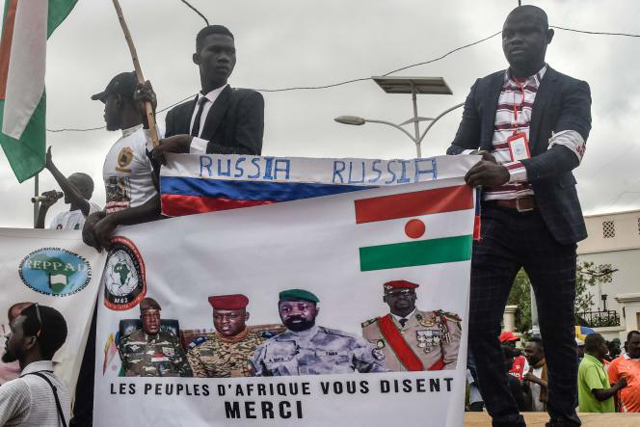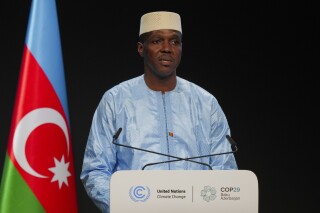
NIAMEY, Aug 4 (NNN-AGENCIES) — Niger’s newly installed junta has threatened an immediate response to any “aggression or attempted aggression”, as the clock ticks down on a deadline given by its neighbours to reverse last week’s coup.
It also made diplomatic swipes against international condemnation of the putsch, scrapping military pacts with France and pulling its ambassadors from Paris and Washington as well as from Togo and Nigeria.
On Sunday, the Economic Community of West African States (ECOWAS) gave the junta a week to reinstate democratically elected President Mohamed Bazoum, who was toppled by his guard on July 26, or risk a possible military intervention.
Regional military chiefs are in Nigeria’s capital Abuja to discuss the possibility of a such an intervention, but Nigerian President Bola Tinubu on Thursday told the bloc’s delegations to do “whatever it takes” to reach an “amicable resolution”.
Niger’s junta warned it would meet force with force.
“Any aggression or attempted aggression against the State of Niger will see an immediate and unannounced response from the Niger Defence and Security Forces on one of (the bloc’s) members,” one of the putschists said in a statement read on national television late Thursday.
This came with “the exception of suspended friendly countries”, an allusion to Burkina Faso and Mali, neighbouring countries that have also fallen to military coups in recent years.
Those countries’ juntas have warned any military intervention in Niger would be tantamount to a “declaration of war” against them.
Nigeria, West Africa’s pre-eminent military and economic power, is the current ECOWAS chair and has vowed a firm line against coups.
The bloc has already imposed trade and financial sanctions on Niger.
Senegal said it would send soldiers to join ECOWAS if it decided to intervene militarily.
“It is one coup too many,” said Foreign Minister Aissata Tall Sall.
One ECOWAS delegation headed by ex-Nigeria leader Abdulsalami Abubakar arrived in Niamey on Thursday, according to an airport source, and was due to meet the junta leaders later.
Another was due to hold talks with leaders in Algeria and Libya.
Bazoum, who has been held by the coup plotters with his family since his ouster, said Thursday that if the putsch proves successful, “it will have devastating consequences for our country, our region and the entire world”.
In a column in The Washington Post, he called on “the US government and the entire international community to help us restore our constitutional order”.
Across Niger on Thursday, thousands of people rallied to back the coup leaders on the anniversary of the country’s 1960 independence from France, with some brandishing giant Russian flags and chanting anti-French slogans.
Several thousand people also took to the streets of other cities.
In a sign of the junta’s displeasure with Paris, it also announced Thursday that it was scrapping military pacts made between Niamey and France.
Paris was also among four capitals from which it is recalling its ambassadors.
“The functions of the extraordinary and plenipotentiary ambassadors of the Republic of Niger” to France, Nigeria, Togo and the United States “are terminated”, it said.
Blaming France’s “careless attitude and its reaction to the situation”, it said it had “decided to scrap the cooperation agreements in the field of security and defence with this state”.
Niger has had a key role in Western strategies to combat a jihadist insurgency that has plagued the Sahel since 2012, with France and the United States stationing around 1,500 and 1,000 troops in the country, respectively.
Bazoum, 63, was feted in 2021 after winning elections that ushered in Niger’s first-ever peaceful transition of power.
He took the helm of a country burdened by four previous coups since independence and survived two attempted putsches before his ouster.
France refocused its anti-jihadist mission in Niger after pulling out of Mali and Burkina Faso last year.
After joining a regional revolt in northern Mali, armed Islamists advanced into Niger and Burkina Faso in 2015 and now carry out sporadic attacks on fragile states on the Gulf of Guinea.
The impact has contributed to army takeovers in all three Sahel countries and devastated some of the world’s poorest economies. — NNN-AGENCIES




